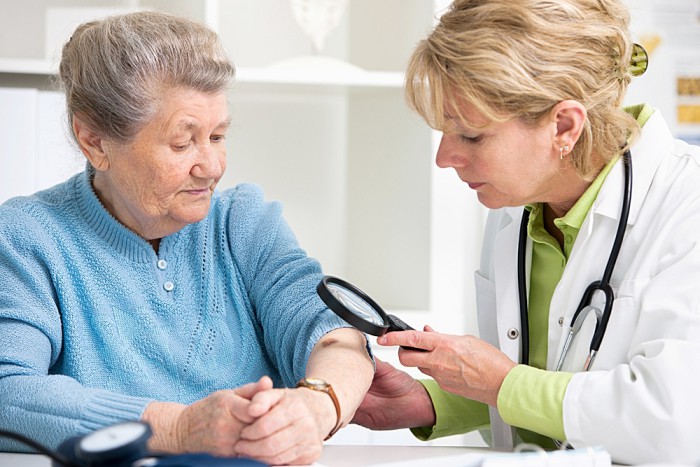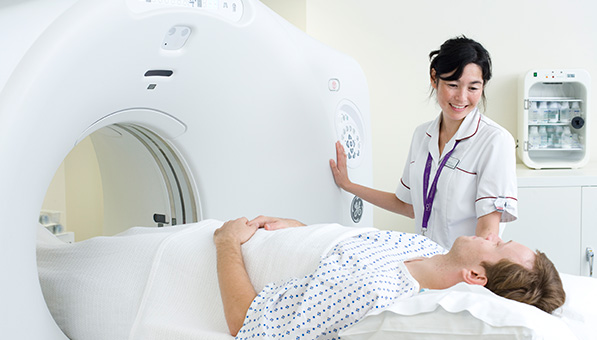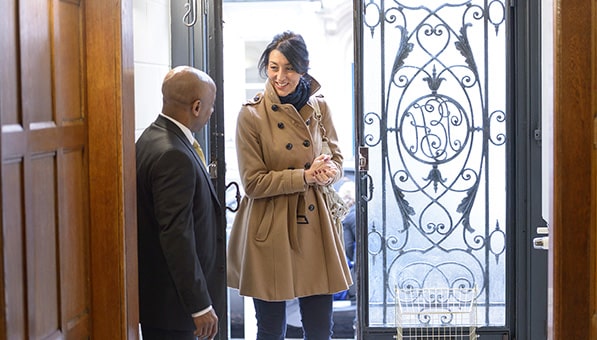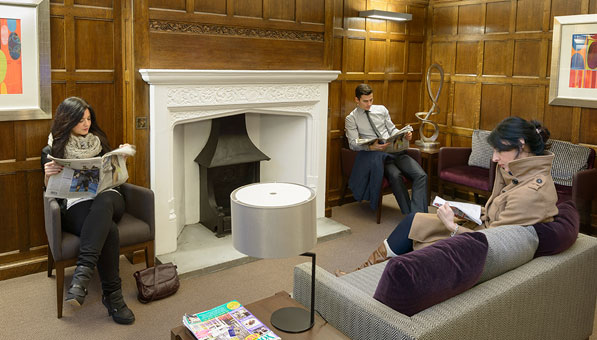Diagnosing Skin Cancer
As for many types of cancer, diagnosing skin cancer early is essential as this allows treatment to start as soon as possible. Survival rates of many forms of skin cancer are high and signs of cancer in the skin can be easier to spot than in other parts of the body. It makes sense to know what to look out for and when to take action.
Our approach to skin cancer diagnosis
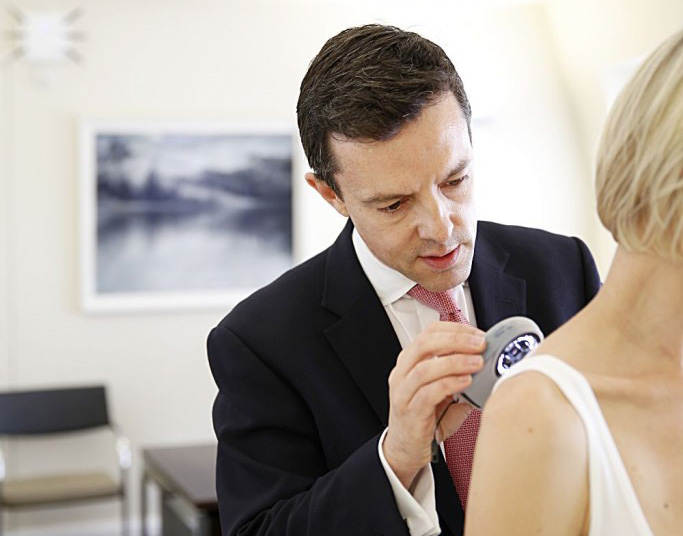
For most people, a consultation ends in good news—the skin condition you thought might be cancer is due to another cause and is easily treated. But if it is cancer, we make sure you enter a treatment plan without delay.
When should I seek medical advice?
We are always happy to see patients who are worried and you should book an appointment if you notice:
- An unusual mole, a mole that changes colour or a mole that bleeds or oozes
- A new mole that grows quickly
- A lump or an area of skin that has become rough, sore or itchy and won’t heal within 3-4 weeks
In most cases these conditions are not cancerous and are nothing to worry about, but you are still strongly advised to have them checked out as the treatment success rate for skin cancers is significantly increased by early diagnosis.
If left untreated, skin cancer can spread, both locally within the skin and elsewhere in the body. Treatment later on needs to be much more extensive; act quickly and more localised treatment may be all that is required.
Medical and family history
When you come in for a consultation with The Devonshire Clinic, we will ask you a number of questions about the area of skin you are worried about:
- When did the problem first appear?
- Has the lump/mole/sore area changed in size or appearance within the last few weeks?
- Does the area itch or cause discomfort?
- Is the lump or area of skin painful?
- Does it bleed or ooze fluid at any time?
You will also be asked questions about your personal medical history, your family medical history and your history of sunbathing, use of sunbeds or your exposure to chemicals such as arsenic and creosote.
Your medical examination
Your dermatologist will examine the area in question in detail, noting the size, shape and colour of any moles or lumps and the colour and texture of the skin. The lymph nodes in your armpits, groin and neck may also be examined.
Dermatoscopy and its role in skin cancer diagnosis
Many potential skin cancers can be examined easily with the naked eye, however, your dermatologist may also perform a more detailed examination using a technique called dermatoscopy or epiluminescence microscopy.
This technique uses a special microscope, with its own light source, which is held close to the skin for a more detailed examination. A thin layer of oil may be used to aid this examination.
Will I need a skin biopsy?
If skin cancer cannot be ruled out but it is not obviously cancer, we will arrange for a skin biopsy. This is a procedure in which a portion of the skin is removed and examined under a microscope to check for the presence and type of cancer cells.
Lymph node biopsy
If your dermatologist suspects that your skin cancer has already begun to spread to your lymphatic system, then they may also do a lymph node biopsy. This may involve the removal of fluid from the lymph nodes using a small needle, called a fine needle aspiration, or the complete removal of the lymph node for examination.
Further tests used in skin cancer diagnosis
If your skin cancer is suspected of spreading beyond the lymphatic system, then your dermatologist may refer you for further tests, such as a CT or MRI scan.
Enquire about
Diagnosing Skin Cancer
Read our
Patient Stories
I can’t recommend this clinic highly enough. The treatment I received for my skin cancer was first class
AL, LondonThe team at the Devonshire Clinic were excellent. From booking my appointments to every part of my treatment, I felt that I was in the very best hands.
CH, LondonBefore visiting the clinic I had quite high expectations, but I was blown away by just how brilliant the experience was. I felt like I was the only patient in the clinic. Simply the best medical treatment.
SF, LondonOur facilities
Our Dermatology Specialists
Our team of skin specialists at our dermatology clinic in London have many years of experience in treating patients with skin conditions. We understand your issues and aim to tailor our service so that you feel comfortable and reassured. Learn more about our dermatology consultants below.
Dr Conal Perrett
Consultant Dermatologist
& Dermatological Surgeon
Dr Conal Perrett is a leading Consultant Dermatologist & Dermatologic Surgeon practising at The Devonshire Clinic. Dr Perrett has expertise in general Dermatology and a specialist interest in skin cancer and skin surgery, utilising the most advanced high-tech equipment and techniques, including Photodynamic therapy (PDT), lasers and Mohs micrographic surgery.
Dr Jane McGregor
Consultant Dermatologist
For over 30 years, Dr Jane McGregor has provided expert dermatological care to patients. She has expertise in photobiology, skin cancer, sun allergy and dermatology. Dr Jane McGregor is an internationally recognised specialist in her field of skin cancer and skin disease for organ transplant recipients.
Dr Ian Logan
Consultant Dermatologist and Dermatological Surgeon
Dr Ian Logan specialises in skin lesion diagnosis and removal, skin cancer, skin surgery, Mohs micrographic surgery and general dermatology. Dr Ian Logan has received higher specialist training after completing a fellowship in Mohs Surgery and Advanced Dermatological Surgery at Cambridge University Hospitals NHS Trust.
Professor Christopher Griffiths
Professor of Dermatology
Chris Griffiths is Adjunct Professor of Dermatology, King’s College London, Consultant Dermatologist, King’s College Hospital and Emeritus Professor of Dermatology University of Manchester. He qualified in medicine from St Thomas’ Hospital Medical School and trained in dermatology in London and Michigan.
Dr Elizabeth Kulakov
Consultant Dermatologist and Dermatological Surgeon
Dr Elizabeth Kulakov is the Skin Cancer Lead at University College London Hospital NHS Trust. Dr Elizabeth Kulakov specialises in skin cancer, skin surgery, Mohs micrographic surgery and general dermatology.
Dr Carolina Fernandez
Consultant Dermatologist
Dr Carolina Fernandez is a consultant dermatologist affiliated with Imperial College Healthcare NHS Trust. She graduated from Imperial College London Medical School, where she obtained her medical degree in 2009.
Dr Rachel Sidwell
Consultant Dermatologist
Dr Rachel Sidwell is a highly experienced Consultant Dermatologist. Whilst she consults on all skin issues including skin cancers and general Dermatology, she has special expertise in paediatric dermatology.
Dr James Wilson
Consultant Clinical Oncologist
Receiving a cancer diagnosis can be overwhelming. You need somebody you can trust to guide you through the many investigations needed and get you to treatment as soon as possible. We will define your treatment plan together – whether our goal is cure, or to enhance the quality of your life.
Shahme Farook
Consultant Head and Neck/Reconstruction and Oral and Maxillofacial Surgeon
Shahme Farook is a Consultant Head and Neck/Reconstruction and Oral and Maxillofacial Surgeon at Northwick Park Hospital.
Dr Daniel O’Driscoll
Consultant Dermatologist
Dr Daniel O’Driscoll is a consultant dermatologist with an NHS practice at Hammersmith Hospital, part of Imperial Healthcare NHS Trust. He trained at Oxford University Medical School, undertaking an intercalated MA in Medical Sciences.
